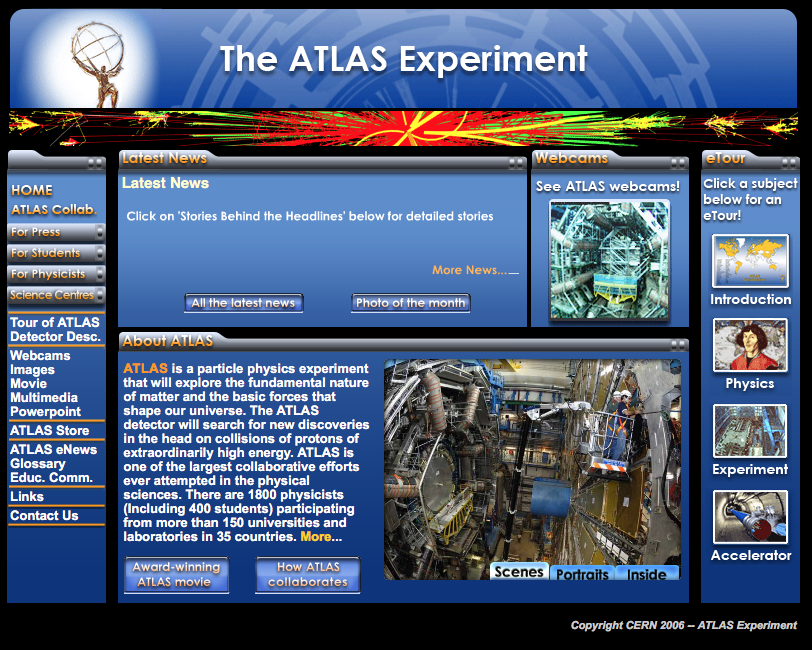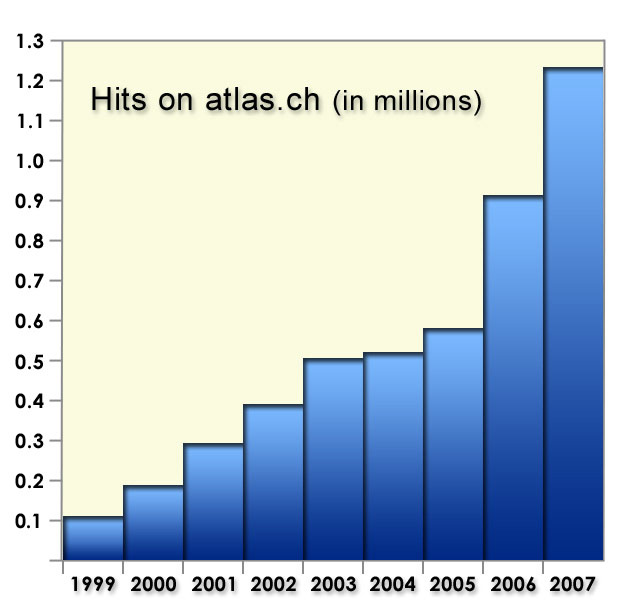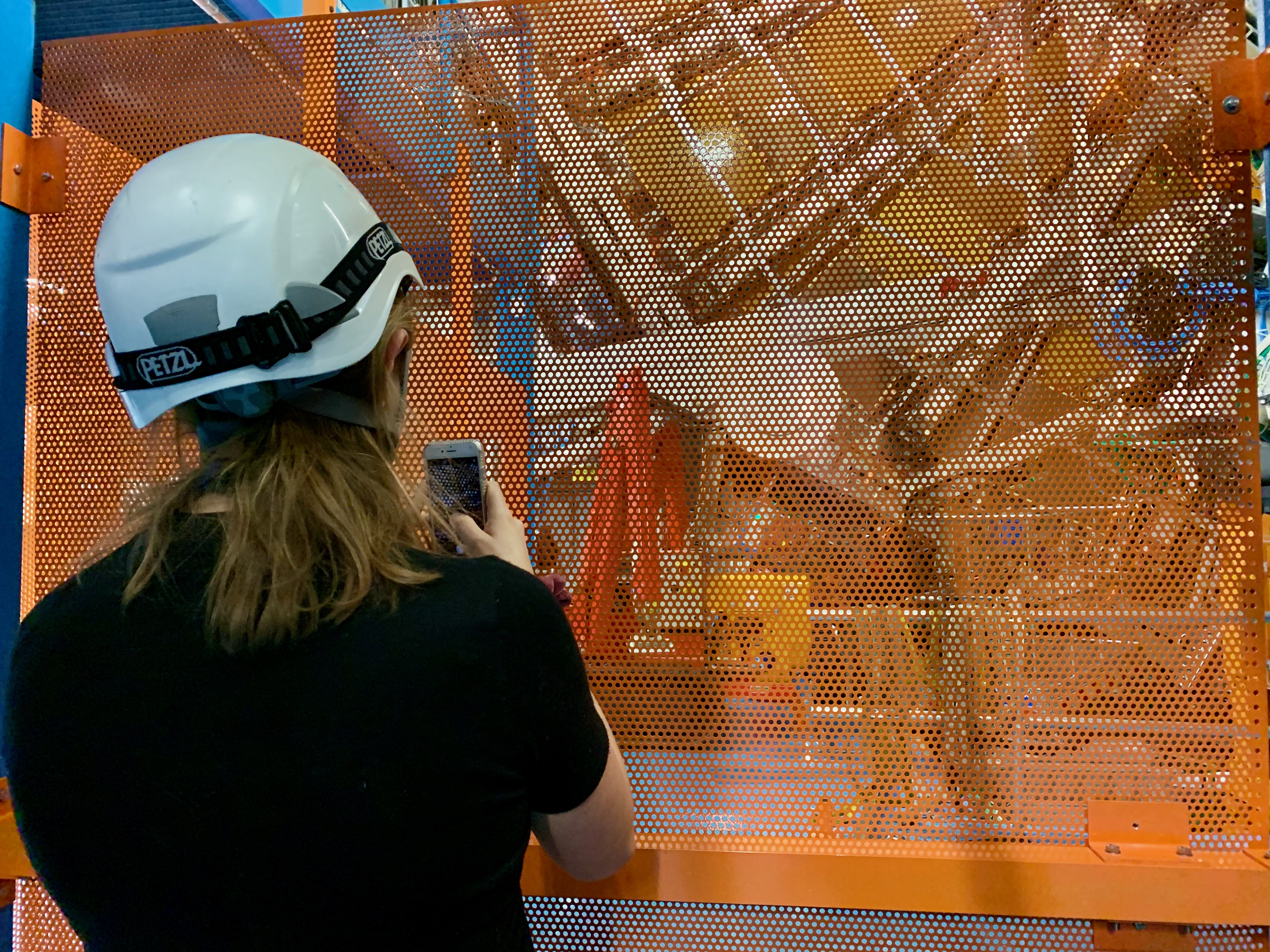Atlas.ch Website Surpasses 1 Million Hits in 2007
1 April 2008 | By

The anticipation on site in Switzerland is tangible as the final steps in the construction of the ATLAS detector get underway, ahead of the LHC switch-on later this year. But whilst all the hard work is going on down in the pit, a small team of people are toiling equally hard to bring that sense of excitement and wonder out into the wider world, and throw open a window onto what will be the biggest experiment in the history of human kind.
“We’ve created a resource where everyone can find out what ATLAS is, why we’re doing it, and why it’s so important. We want to share our anticipation of what’s about to happen in Geneva,” says Michael Barnett, senior physicist at Lawrence Berkeley National Laboratory, USA, and co-coordinator of the ATLAS Education and Outreach group.
Together with web developer Paul Schaffner, he is responsible for the ATLAS public website, which last year notched up well over a million hits. In line with the flurry of activity which has ensued in the cavern, these pages have undergone a complete reinvention since 2005, and now include gallery, glossary, video, webcam, and press sections, to cater for the massive public interest that is brewing. In that time, annual hits have more than doubled, from 579,000 in 2005, to 1,263,000 in 2007.
“Our main goal is that the information on the site be accessible and engaging for anyone, from the general public, children, students, scientists… right through to the ATLAS researchers themselves,” says Paul, adding, “This experiment involves the fundamental building blocks of our Universe, and the possible outcomes of it include a whole brand new area of physics. And of course, the collaboration itself involves 2,000 physicists, from 38 countries. It’s really very exciting.”

The first step in the recent expansion, according to Michael, was obtaining the domain name “atlas.ch” a few years ago. At only one character longer than “cnn.com”, it is certainly an easy address to remember. Next, they turned their attentions to finding ways to drive traffic to the site, by including what Paul describes as “the best of everything we have; animations, images, interviews, and more”. Now their focus is on constantly updating the material to keep it fresh and new, and the audience hooked.
Currently, a Google search on the term “ATLAS experiment” returns the atlas.ch site as the number one result; while a search on “atlas” brings it up at number eight. This is pretty impressive if you consider all the different things the word might refer to: a book of world maps, part of the spine, a moon of Saturn, a beetle, a branch of mathematics, a pop band, a missile, a Greek God, and a range of mountains, to name but a few.
But this site isn’t the only way that ATLAS is connecting with the world at large. There is a dedicated ATLAS channel on popular video sharing site YouTube, screening explanatory movies and animations about the experiment; and Google Earth now shows the locations of the LHC and ATLAS, with links to information and the website. The YouTube presence at http://YouTube.com/TheATLASexperiment has been instrumental in capturing the attention of sections of society who may not otherwise have known about ATLAS, and feedback from users of the site has been encouraging. This is heartening, considering that ground-breaking particle physics is hardly the simplest subject to convey to non-experts.
“It can be very daunting; the more you learn about it all, the more it can seem overwhelming. The research is at the forefront of physics, and the sheer volume of information we want to convey is immense,” says Paul. “The most important thing is to offer it in a straight forward way, but to keep offering new things, so that even the physicists working on the experiment can find some value in it. They can use the animations and videos we’ve produced at talks they give, for example.”
Paul and Michael are ambitious in their aims to make the website work on many levels, encompassing all sections of society: “We’d like to have some more interactive features, to draw in younger children, and there are plans to add audio interviews of a variety of people at ATLAS, to give an impression of what we’re really like,” says Michael. “And then there are things like Facebook, the social networking site. We’re always learning about new things we could tap into.”



